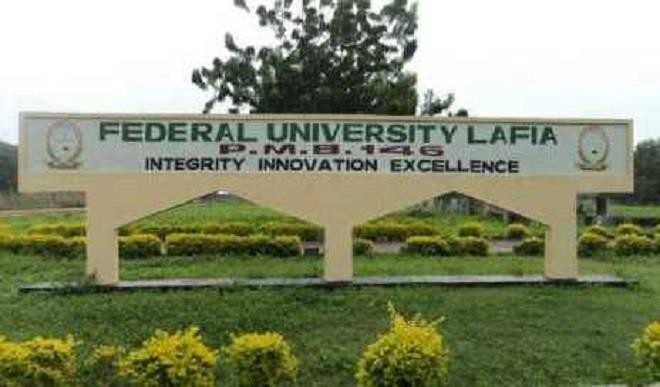Education
CSACEFA, ActionAid, Others Solicits Increased Allocation For Education

Civil Society Action Coalition on Education for All (CSACEFA) in partnership with ActionAid Nigeria and other partners have called on the Federal Government for increased budgetary allocation in the education sector.
The National Moderator, CSACEFA, Mr Babatunde Omole, at a one-day National Dialogue on Education Financing in Abuja on Thursday also called on stakeholders to leverage on ensuring holistic development in the sector.
The theme of the dialogue tagged, “More and Better Financing Education in Nigeria” is a global action week on education.
He added that in spite of policies to advance the course of education in the country, there was a need for states to assess the Universal Basic Education (UBE) matching grant.
“If we look back as far as 2000, we have a lot of programmes such as the UBE Act, National Policy on Education, the child right act, the violence against Persons prohibition Act and others.
“Despite all these policies, we are not happy to say that Nigeria still has an estimated 13.2 million children according to UNICEF.
“And the National Personnel Audit report of 2018 agrees also that there are high numbers of out of school children in Nigeria putting the figure to nearly 10 million children.
“It is most worrisome that the challenges are coming from the states. How do I mean, many states are not accessing the UBE funds.
“As of 2019, over N51 billion (N51, 612,874,700.70) was lying fallow in the CBN un-accessed, waiting for states to access these funds to provide infrastructure and teachers Professional Development.”
Omole added that towards the ease of lockdown, the Federal Government reduced the funds allocated to the UBE by over 50 per cent, saying that the Federal Government was asked to reverse it.
He, however, called for earnest passage of the UBE bill to fast track development in the education sector.
Also, Mrs Ene Obi, Country Director, ActionAid Nigeria, said that the future of Nigeria lied in the quality of its education which according to her was the major driver of socio-economic development.
Obi called for increased domestic financing for a strong public, inclusive and resilient education system in Nigeria.
She pleaded with the government to rise to the challenge of increased insecurity especially as it affected educational institutions across the country.
In the same vein, the Chairman, Senate Committee on Tertiary Institutions and TETFund, Sen. Ahmed Kaita, reaffirmed the commitment of using legislation with the aim of improving and rejuvenating the deployment of infrastructure in tertiary institutions.
Kaita, represented by the Clerk to the Committee, Dr Mustapha Bintube, also said that the committee was determined to partner with stakeholders in ensuring equality within the system for the betterment of humanity.
Also, Miss Angel Asuzu, a student of Government Secondary School, Kubwa, called for government action on improvement of education in the country.
Asuzu also wanted a political economy for education budgeting as well as sustainability of education financing.
NAN
Education
Inclusive Education Boost as Deaf-Tech, Federal University of Lafia Roll Out Master’s in Disability Studies

Joel Ajayi
In a major step toward advancing inclusive education in Nigeria, Deaf-in-Tech, an initiative of Data-Lead Africa, has signed a Memorandum of Understanding (MoU) with the Federal University of Lafia (FULAFIA) to establish a Professional Master’s Degree in Disability Studies.
The signing ceremony, held at Deaf-in-Tech’s headquarters in Abuja, featured a goodwill message from Prof. Adaka Terfa Ahon, Director of the Centre for Disability Studies, who represented FULAFIA’s Vice Chancellor, Prof. Shehu Abdul Rahman. He reaffirmed the university’s commitment to championing disability and inclusion in its academic innovation and planning.
The new Master’s programme will adopt a hybrid learning model, with online classes complemented by in-person sessions at Deaf-in-Tech’s training facility in Abuja. It is designed to build expertise in disability-inclusive governance, education, and development across sectors.
Executive Director of Deaf-in-Tech and Co-Founder of Data-Lead Africa, Dr. Arowolo Ayoola, described the collaboration as a “structural shift” in how institutions and professionals engage with disability issues. “The inclusion journey must begin with knowledge, and we are proud to partner with a progressive university like FULAFIA,” he said.
Beyond the postgraduate programme, the partnership will also establish a Deaf-in-Tech Club on FULAFIA’s campus — the first of its kind — to empower Deaf students with technology skills, mentorship, and innovation opportunities. Additional initiatives include a ₦1 million academic excellence reward for any Deaf student who graduates with a First Class, as well as the development of a disability-accessible website and digital database for the Centre for Disability Studies, built to WCAG 2.1 global accessibility standards.
The alliance underscores both institutions’ commitment to building inclusive systems and celebrating excellence, while positioning Deaf-in-Tech as a catalyst for bridging the gap between disability and the digital economy.
-

 Featured6 years ago
Featured6 years agoLampard Names New Chelsea Manager
-

 Featured5 years ago
Featured5 years agoFG To Extends Lockdown In FCT, Lagos Ogun states For 7days
-

 Featured6 years ago
Featured6 years agoChildren Custody: Court Adjourns Mike Ezuruonye, Wife’s Case To April 7
-

 Featured6 years ago
Featured6 years agoNYSC Dismisses Report Of DG’s Plan To Islamize Benue Orientation Camp
-

 Featured4 years ago
Featured4 years agoTransfer Saga: How Mikel Obi Refused to compensate me After I Linked Him Worth $4m Deal In Kuwait SC – Okafor
-
Sports3 years ago
TINUBU LAMBAST DELE MOMODU
-

 News9 months ago
News9 months agoZulu to Super Eagles B team, President Tinubu is happy with you
-
Featured6 years ago
Board urges FG to establish one-stop rehabilitation centres in 6 geopolitical zones
